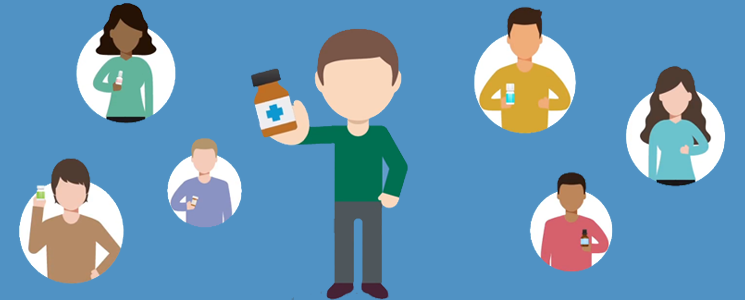
6 December 2018 – The Eastern Mediterranean Region joins the world in marking Patient Solidarity Day on 7 December 2018.
This year’s Patient Solidarity Day focuses on Safe Medication and Health Care for All. Unsafe medication practices and medication errors are a leading cause of avoidable harm in health care systems globally. The Eastern Mediterranean Region is no exception.
Worldwide, the cost associated with medication errors has been estimated at US$ 42 billion annually – almost 1% of total global health expenditure. This is a waste of valuable resources. The money could be saved by implementing achievable, yet very important measures to address common problems and errors patients face in seeking and receiving health care services.
Errors in the process of medication – from prescribing and dispensing to administering, monitoring and use – result in severe avoidable harm. The World Health Organization (WHO) launched its third WHO Global Patient Safety Challenge; “Medication Without Harm”, in March 2017 with the aim of halving severe avoidable medication-related harm globally within five years through improvements at each stage of the medication process.
On the occasion of the Patient Solidarity Day, Dr Ahmed Al-Mandhari, WHO Regional Director for the Eastern Mediterranean, reiterated WHO’s support for this important event and the promotion of patient-centred, quality, safe health care in the Eastern Mediterranean Region. “To radically improve health outcomes, we need to harness the energy of people and organizations across the Region. That is our vision of Health for All by All, which calls for solidarity and action,” he said.
“Systems should move away from a disease-centred approach towards integrated, patient-centred health care services. A patient-centred approach requires the active involvement of patients to adhere to their treatments, make behavioural changes and self-manage.”
At the regional level, the Medication Without Harm challenge was announced in September 2017. Since then, 16 out of 22 countries in the Region have announced their commitment to safe medication as a top priority. However, making progress will require politicians and health care leaders to prioritize medication safety as well as educating and empowering patients and care givers.
Patient Solidarity Day provides an opportunity to discuss common problems, search for appropriate solutions and help health care system stakeholders understand patient needs and improve health care service delivery.
Patient solidarity means people working together to achieve fair and impartial access to quality health care worldwide. Health care should be accessible, affordable, equitable and of good quality for everyone. This accords with other ongoing efforts to advance towards universal health coverage.
On Patient Solidarity Day, WHO calls on everyone involved in health care to ensure that the provision of care is respectful and responsive to each individual patient’s needs and values, and to build a respectful relationship between patients and health workers, including good communication and shared knowledge as well as appropriate working hours and waiting times.
For more information:


